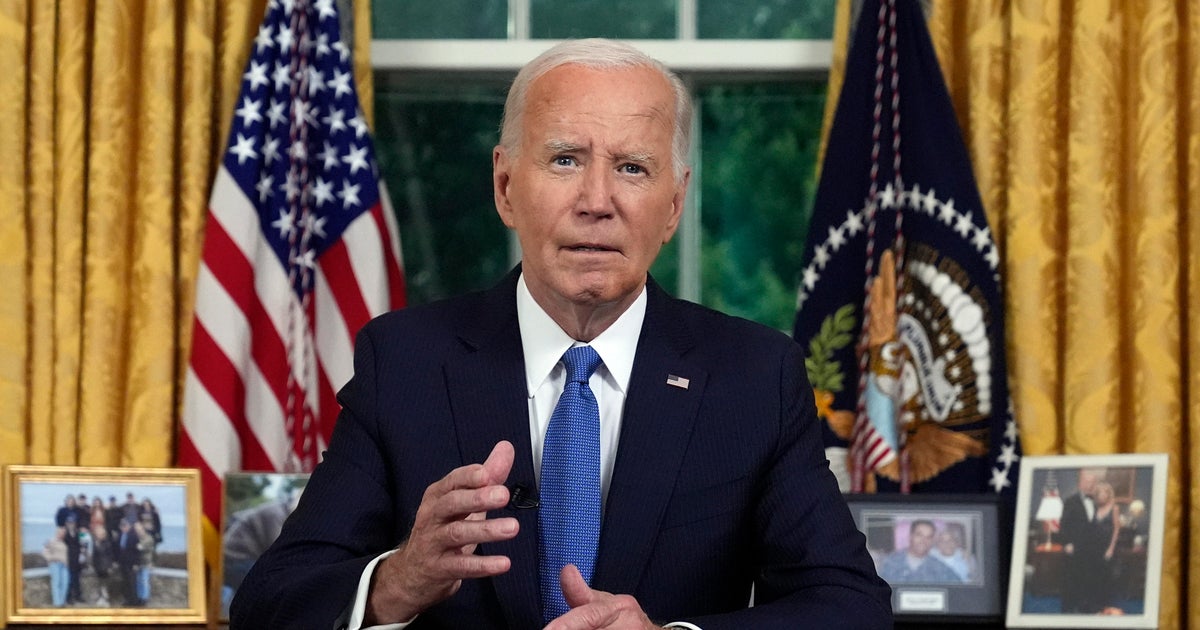Pelosi tells Democrats that House could be forced to decide presidential election
Washington — With the presidential election just 36 days away, House Speaker Nancy Pelosi is outlining a scenario in which the House of Representatives is forced to decide the outcome of the 2020 race for the White House, telling her Democratic caucus that the possibility underscores the need for the party to expand its majority in the House and win control of more state House delegations.
In a letter to House Democrats on Sunday, Pelosi detailed a situation that has not arisen for more than a century, in which neither Joe Biden nor President Trump wins the 270 electoral votes required to win a majority of the 538-vote Electoral College. If that happens, a newly elected House would decide the fate of the presidency in January, with each state casting a single vote, as required by the 12th Amendment.
"Instead of giving every member of Congress a vote, the 12th Amendment gives each state one vote, which is determined by a vote of the state's delegation," Pelosi, of California, said to her fellow House Democrats. "In other words, how many state delegations the Democrats win in this upcoming election could determine who our next president is."
The Constitution, Pelosi continues, states that a presidential candidate "must receive a majority of the state delegations to win" in the event that the election goes to the House.
"We must achieve that majority of delegations or keep the Republicans from doing so," she said in her appeal to House Democrats.
Politico was the first to report Pelosi's efforts to mobilize Democrats.
While Democrats hold a majority of seats in the House, Republicans currently control a slim majority of 26 state House delegations and Democrats control 23. One state, Pennsylvania, has a split delegation, with nine Republican members of the House and nine Democratic members.
According to the Center for Politics at the University of Virginia, which analyzed the upcoming House races, 26 House delegations at least lean Republican and 20 at least lean Democratic. Four are toss-ups: Pennsylvania, Iowa, Minnesota and Michigan.
Pelosi stressed the importance of supporting the political action committee working to elect Democrats to Congress and expand the number of state delegations controlled by the party.
"Simply put, this strategy to protect our democracy and elect Joe Biden will take an all out effort and resources," she said.
Presidential electors are scheduled to meet and cast their votes in their respective states December 14. On January 6, the Senate and House are set to assemble in a joint session of Congress to count the electoral votes and declare the election results.
The 20th Amendment requires the new Congress to convene at noon on January 3, unless the previous Congress passes a law changing the date.
Pelosi is not alone in raising the possibility of the House deciding the result of the presidential election. During a rally in Pennsylvania on Saturday, Mr. Trump said he does not want the outcome of the 2020 presidential election to wind up before either the Supreme Court or Congress, though he acknowledged Republicans have an advantage if the House were tasked with deciding the winner.
"I think it's 26 to 22 or something because it's counted one vote per state, so we actually have an advantage," he said. "Oh, they're going to be thrilled to hear that."
Kimberly Brown and Aaron Navarro contributed to this report.



